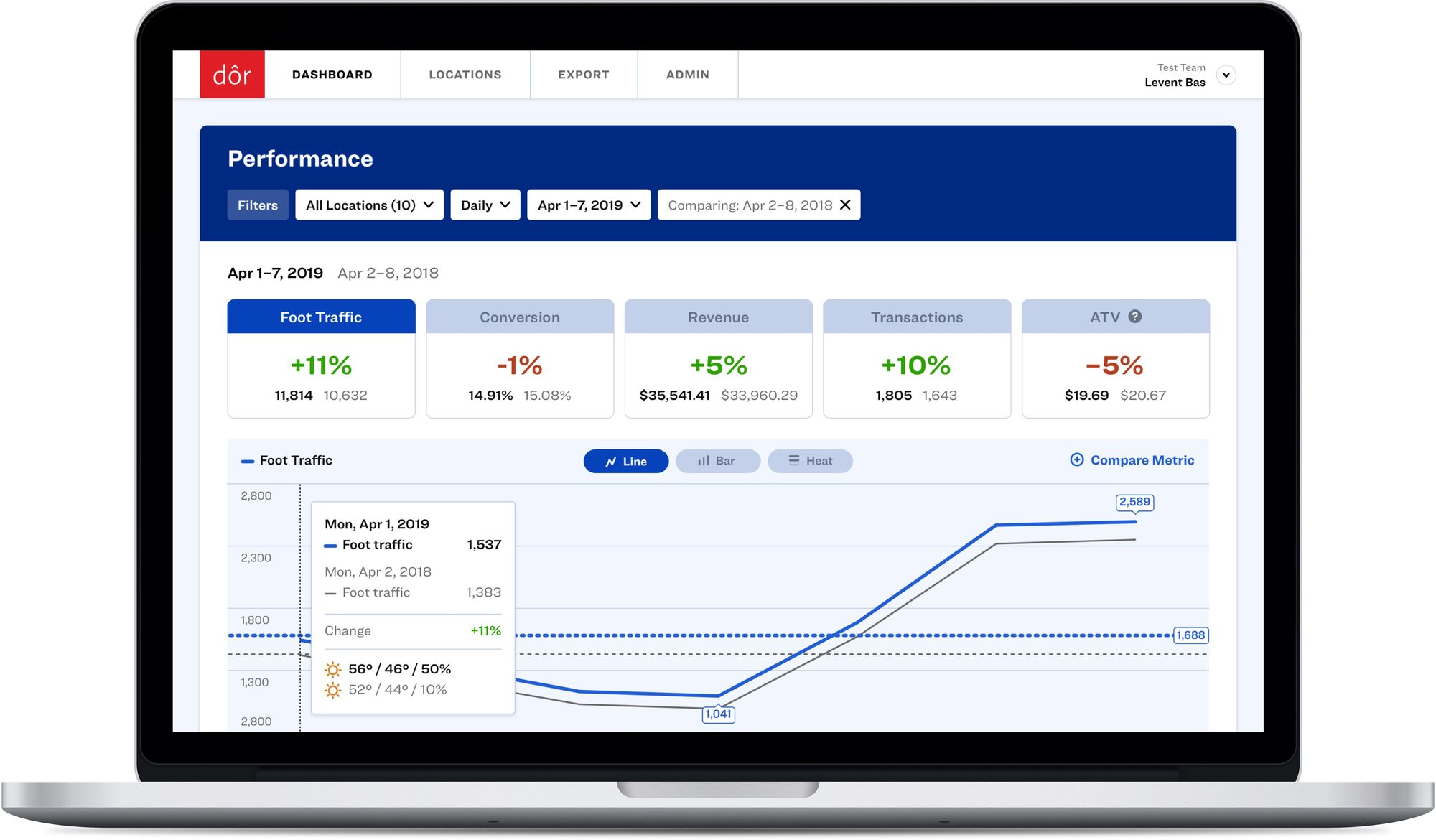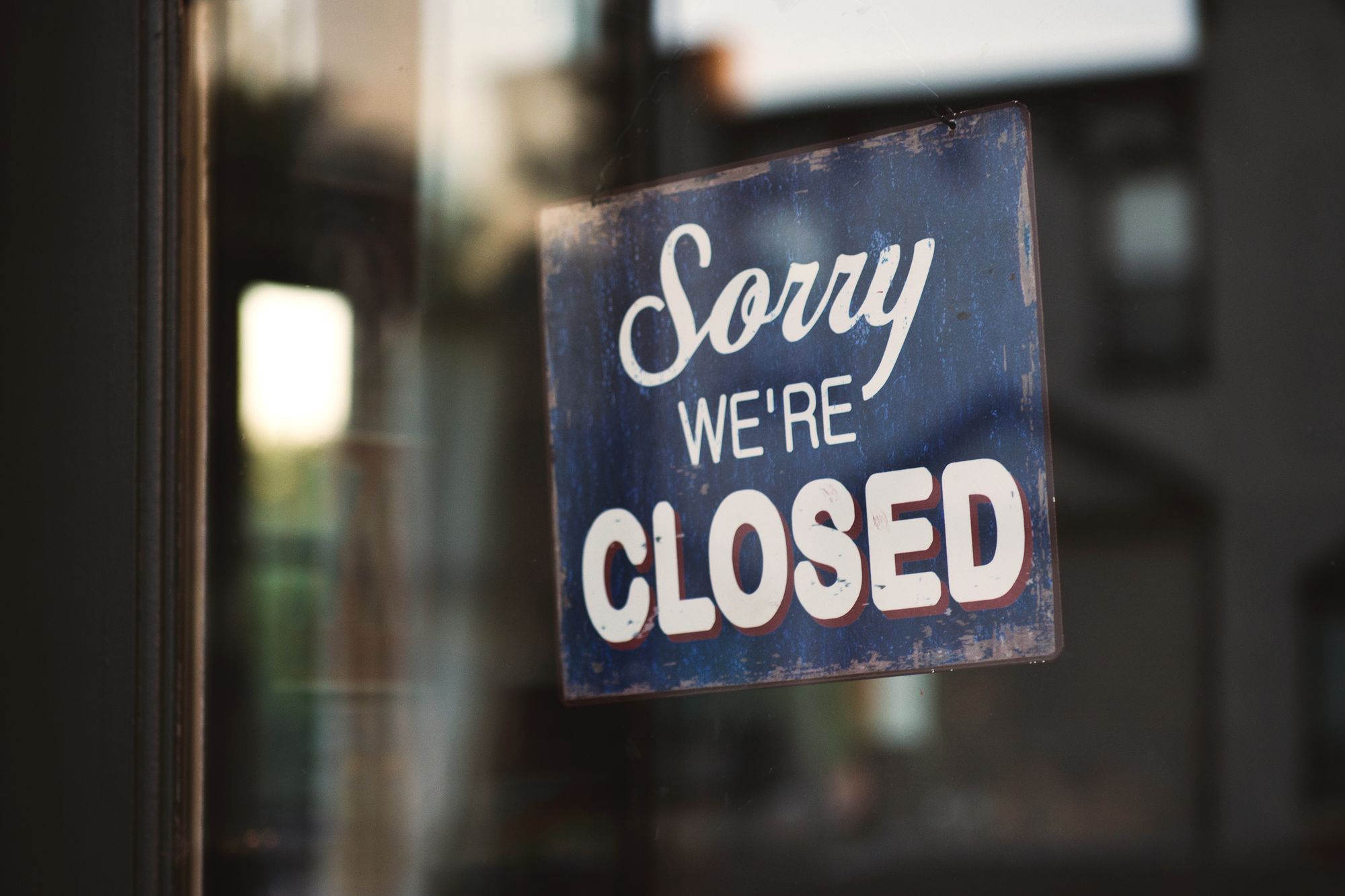Stores are the heart and soul of the retail world. Customers visit stores for their essentials, their needs, their luxe, and for their social wellbeing.
Imagine a disorganized store and an unhealthy atmosphere to live and breathe in as you walk in. This would be the worst nightmare of a retail owner, and a superhuman is there to avoid these experiences.
They are called “store managers” and the retail business world is turning around them.

Did you know that a 1% increase in your store’s conversion rate can mean a 10% increase in revenue?
Click here to discover how Dor can help you understand your foot traffic data and make more profitable business decisions.
Ready to purchase? Complete your purchase in just minutes!
Who is a retail store manager?

A store manager is the head of people & operations in a retail store, who is responsible for the upbringing of it. The title involves many things, from keeping track of incoming inventory to managing other personnel and customers in the store.
The store managers are usually well educated, they have enormous people and analytical skills. They have a combination of intelligence quotient and emotional quotient, which is a rare condition and it's not common in other professions.
Retail store managers are communicative as they deal with other employees and customers throughout the day. They are also adaptive to new systems and environments. They can make a store richer or poorer with their people skills. There are many cases where a store manager makes you spend hours in a store purchasing and some cases where the customer just leaves the store even without buying the most essential item in the list.
Since a greeting welcome and knowledge about the product is important for a retail store, it's crucial to have a positive attired, clever store manager taking care of the place. Most store managers spend more time in the store than they do in their homes, so they are especially keen on keeping the place as a home to its customers as well. At the same time, they are great team players, who know how to cheer their personnel to reach the monthly sales goal of the store.
Related: Sales Greeting Techniques: How to Talk to Walk-in Customers In Retail
10 important responsibilities of store managers
Managing sales and budget
Store managers’ main job is to make profitable sales.
They keep records of what is selling, they make sure the store expenses are not too high, so there is enough profitability to manage a sustainable business.
Retail HR - Hiring and training

One of the most important responsibilities of a store manager is hiring retail employees and training them. They are in charge of increasing retail employee performance, keeping the turnover rate low, and in some cases, these rates are included in their key performance indicator list.
They have to understand personnel psychology and be able to assess skills to hire the right person to run operations in the store.
Inventory management
Store managers are the ones to keep track of what is in store, which items are selling fast, which are going slow etc.
They are analytical people, and they need to have some kind of forecasting skills to make sure the customers never run out of a product they need. The store managers can use computers to manage these numbers, or they can do manual work.
Whichever method they choose they are expected to be precise about their numbers so the retail business owner does not lose money due to insufficient or excess stock.
Customer satisfaction
Imagine watching a movie that takes place in a retail store. When a customer encounters a problem, the first thing they say is “Where is your manager? Let me talk to your manager!’
So, the store manager is the customer-facing and problem-solving person in the store, responsible for increasing customer service satisfaction, and no one has a higher authority than them. Managers talk to the customers about their problems, give them information about the returns, try to solve conflicts between the store employee and the customers, and sometimes between customers as well.
In-store marketing
Visual merchandising and store design is what makes the store look appealing to the customer.
The store manager also has to have an eye for design, so they can manage the aesthetics of the store. When there is a promotion, they have to know where to put the signs so the customer sees and comprehends the promotion and finalizes the sales process.
Campaign and promotions management

Who can say no to a welcoming offer made by a cheerful person? Store managers are the key person to run the upsell and cross-sell business in the store, but they have to understand whether the customer is open to receiving it or not.
Even if the customer is coming to the store to buy one item, if the store manager can connect with the customer and understand their needs, they can leave the store without actually buying more than they planned. The difference between two store managers and their perspective is shown in this famous story:
Two shoe salesmen go to a remote island to break into new markets. After a few days, one salesperson calls the office and says, ‘I’m on the next flight. Can’t sell shoes here. Everyone goes barefoot.’ The other salesperson sends an email to the boss minutes later: ‘Get ready! The prospects are unlimited. Nobody wears shoes here!’
Competitive research
Even if the retail store is in a shopping mall or a street, there is a lot of competition in product and price. The store managers are also mystery clients for their brand.
They go around their competitive stores and they look through what they are selling, which promotions they have, and at which price point, and then return to the store to tell you about it.
They are the eyes and ears of the management since they also know about what customers think about the competition as well.
Operations
Store managers are responsible for every operation going around in the store. They know when the delivery is coming or when the promo will begin or which position has to be filled.
They are also responsible for monthly and yearly sales and often they get bonuses if they meet the target. So, they have to keep a circular process in terms of operational management to make sure everything runs smoothly.
Security

The store manager keeps the store safe and secure. Usually, they are the ones to lock and unlock the store, implement security cameras, and keep the cash safe.
Given this responsibility, they will be the first person to call in case of an emergency. This is the same for the people working in the store, or the customers as well. If something happens, like an unfortunate accident, they are the ones to contact necessary help.
Technology adaptation
We all know that the retail business is not just about the physical building and the walk-in customers anymore.
There are many technological advancements in retail, such as Dor’s people counting technology and other digital tools to make the customer journey more successful. Store managers are the go-to person for these tools to be used by the store employees and the customers.
They must be tech-savvy to understand them and train others to increase engagement.